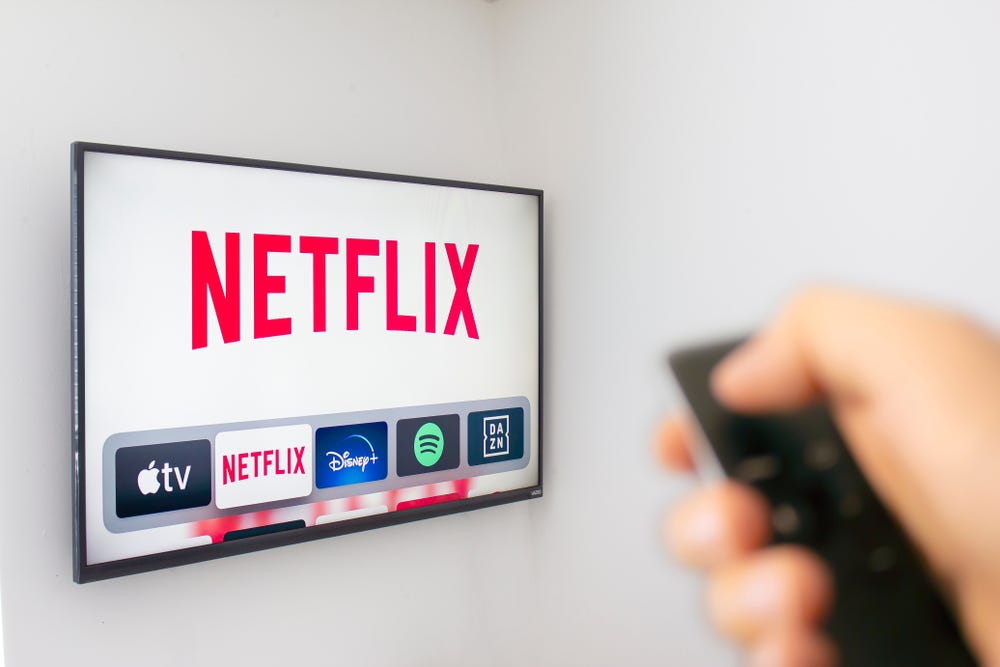Josh Dehaas: The government knows what's good for your Netflix
The CRTC will soon have a say in what content you can and can’t see on services like Netflix, Amazon Video and Spotify.
By: Josh Dehaas
On November 3, as Americans went to the polls, Canadian heritage minister Steven Guilbeault tabled Bill C-10 An Act to amend the Broadcasting Act. A cynic might suggest that the Liberals chose election day for a reason: every journalist in the country would be too preoccupied to cover it. C-10 was bound to be popular among certain interest groups in Toronto and Montreal, but Guilbeault had every reason to be concerned that the bill would provoke outrage among the masses.
Allow me to try to provoke that outrage now.
Bill C-10 would expand the term “broadcasters” to include online content creators. This means that after decades of a mostly regulation-free Internet, the CRTC will soon have a say in what content you can and can’t see on services like Netflix, Amazon Video and Spotify. The bill says these “broadcasters” will be required to “serve the needs and interests of all Canadians — including Canadians from racialized communities and Canadians of diverse ethnocultural backgrounds, socio-economic statuses, abilities and disabilities, sexual orientations, gender identities and expressions, and ages — and reflect their circumstances and aspirations, including equal rights, the linguistic duality and multicultural and multiracial nature of Canadian society and the special place of Indigenous peoples within that society.”
In the Globe and Mail Guilbeault helpfully translated from Newspeak: broadcasters now must create “Indigenous programming,” and possibly other forms of mandatory content by and for minority groups. Guilbeault said that the mandatory Indigenous programs are necessary to correct the “historical mistake” that Canada made when it denied Indigenous people their cultural expression. That historical mistake apparently cannot corrected solely by forcing Canadians to fund APTN and non-stop Indigenous content at CBC. Only when every private company is co-opted in the mission will the mistake be corrected.
It’s bad enough that this new law will require Canadians to pay for shows and podcasts that they’re unlikely watch. What’s really disturbing is that this new law means any large company that wants to produce artistic and cultural content online in Canada will no longer be permitted to devote their time and money exclusively to expressing the ideas that they wish they express. Instead, they will be forced to also express the ideas the government wishes them to express. This is compelled speech, which is the term lawyers use when the government forces you to mouth its message. This is contrary the spirit of free expression rights that the Charter of Rights and Freedoms guarantees.
The new policy might strike you as old-fashioned broadcast regulation. It isn’t. The theory behind the original Broadcast Act was that the airwaves were a finite resource, requiring the government to act as referee. Otherwise, we could end up consuming nothing but low-brow American cultural products rather than high-brow CanCon like Family Feud Canada and Hedley. This was an elitist argument, since it assumed that individual consumers weren’t capable of determining what content is in their own interests, but at least it made a little sense, because it was theoretically possible for important programming like news to get completely crowded out. The Internet, on the other hand, is effectively infinite. There’s room for everyone’s content in the online marketplace of ideas. So far, it’s worked wonderfully. Virtual nobodies can find huge audiences without big money to get started. There’s really no reason for the government to interfere.
There’s a reason the Liberals are doing this. It’s the same reason Justin Trudeau went to bat for Bombardier. The law will create more work for writers and producers of CanCon who live in key urban seats. The fact that Canadians would rather watch Game of Thrones and The Crown than Mohawk Girls or Mr. D has caused broadcasters to lose hundreds of millions in advertising revenue, threatening the jobs of local actors, screenwriters and broadcasters who live in Toronto and Montreal. Netflix is spending $100 million but that’s not enough to make up for the loss. If the government can force Netflix, Spotify, Disney, Amazon — basically everyone — to fund the new CanCon (starting with “Indigenous programming”), they can lock up the arts and culture vote, which might otherwise go Green or NDP.
It’s also a deliverable for the Liberals to present to Indigenous Canadians: “See what we got the big tech companies to do for you?” The Liberals may not have gotten the drinking water cleaned up, but Indigenous Canadians are going to love the latest binge-worthy show landing on Prime next month.
C-10 may be good for the Liberal Party. But it’s compelled speech and Canadians who care about freedom of expression shouldn’t let them get away with it.
The Line is Canada’s last, best hope for irreverent commentary. We reject bullshit. We love lively writing. Please consider supporting us by subscribing. Follow us on Twitter @the_lineca. Fight with us on Facebook. Pitch us something: lineeditor@protonmail.com


I know it’s hyperbole, but calling Mr D a show “Canadians are unwilling to watch” when it attracts between half a million and a million viewers an episode is silly. The idea that a network could make Game of Thrones if only it were freed of the horrible constraint of having to make Mr D is likewise ridiculous — and, frankly, a terrible move from a business perspective. At its very best, Game of Thrones had just over double the audience of Mr D in Canada but also cost $15 million per episode. That’s more than the budget of a full season of Mr D.
There's not a single clause in Bill C-10 that compels anyone's speech. And anyone who cares about freedom of expression and programing that serves Canadians better should fully support Bill C-10's provisions.